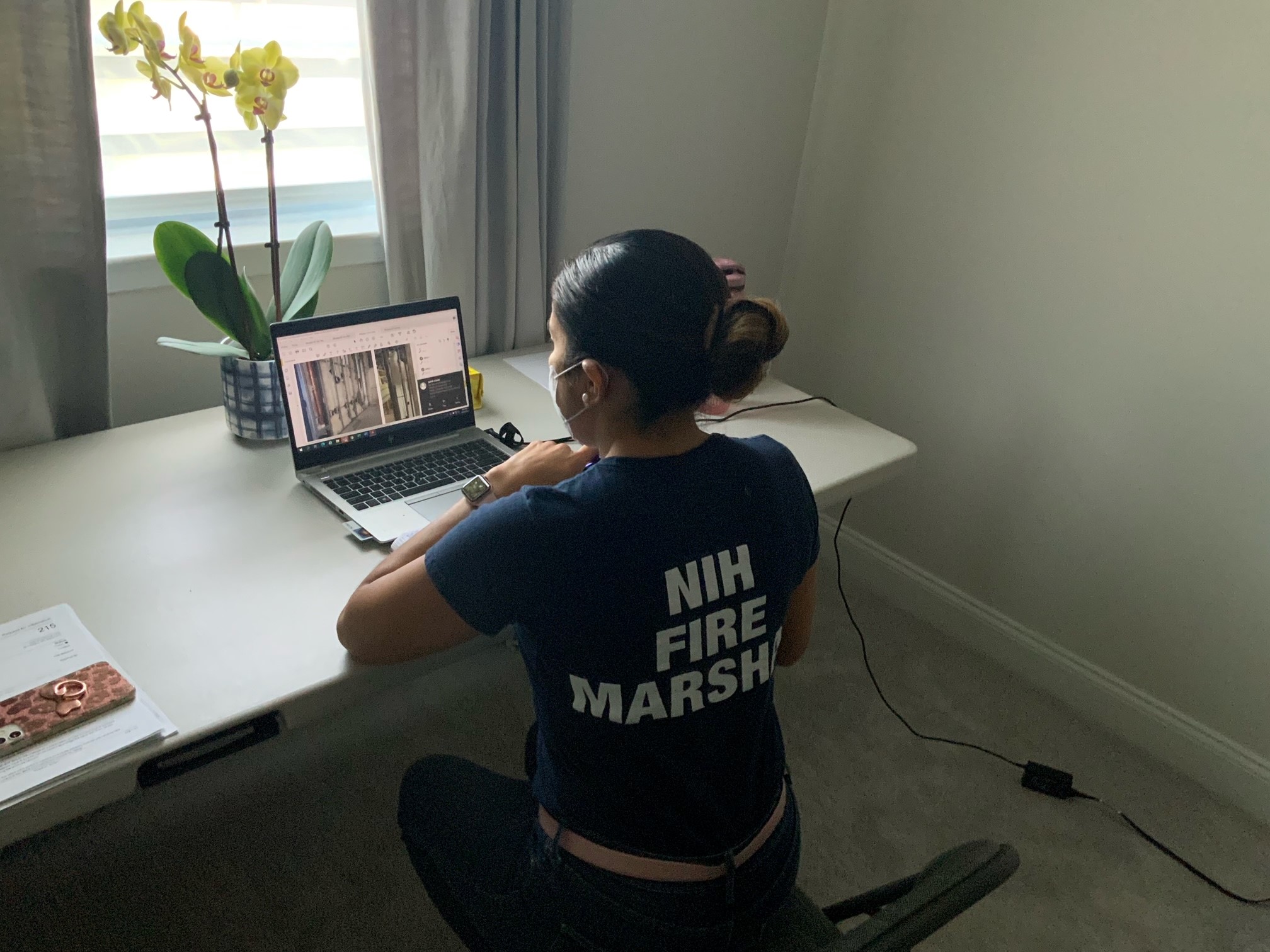The Division of the Fire Marshal (DFM) has maintained a presence on the Bethesda and Ft. Detrick campuses throughout the pandemic to keep existing buildings safe, evaluate fast-paced and recurring physical and operational changes in Building 10, and ensure that construction and renovation projects (proceeding as if there was no pandemic) were reviewed and inspected for code compliance. DFM made immediate changes as COVID-19 hit, including rotation of staff, creative scheduling, instituting some telework and authoring many public service articles (several with specific pandemic-related precautions).
The most innovative change was the institution of remote construction inspections. As most code authorities do, DFM adopts and enforces codes and standards declared by the National Fire Protection Association. This group formed a committee to write a standard on remote inspections, but the process takes several years. DFM quickly pooled the extensive experience of its engineering and inspection staffs to develop a policy for conducting remote inspections at NIH-owned facilities.
There is no full substitute for physically conducting an inspection in person, especially for complex construction projects, which remains the preferable method. However, DFM was constrained by the prohibition on official travel and the guidance to limit personal contacts. One of the major construction projects on the Bethesda campus is being built by the modular method. In past years, DFM engineers would travel to the location where the modules were being built to inspect the construction and fire protection systems before the walls and ceilings of the modules were closed in. Since this was not allowed during pandemic, DFM's new policy allows remote video and photo inspection as a substitute.

(Photo above) DFM Engineer Zenia Velazquez conducts a remote video inspection.
The remote inspection policy has also proved useful for re-inspections. Often an inspection will result in a "punch list" of minor items that must be corrected. Since the inspector or engineer is already familiar with the site, photos can suffice to demonstrate that these items have been corrected. This has proven to save time and increase efficiency as well as reduce contacts.
The DFM has the sole discretion of ensuring a remote inspection is appropriate for a given situation or project. Whether done by video or still photography, remote inspections must be validated. The DFM policy ensures that approved plans are followed, the location is established, all parties are identified, the inspection is comprehensive and the results are documented. This innovative policy is one of the ways that DFM, despite the challenges of the pandemic, ensures the life safety of staff, patients and visitors, while helping to safeguard the NIH mission.
